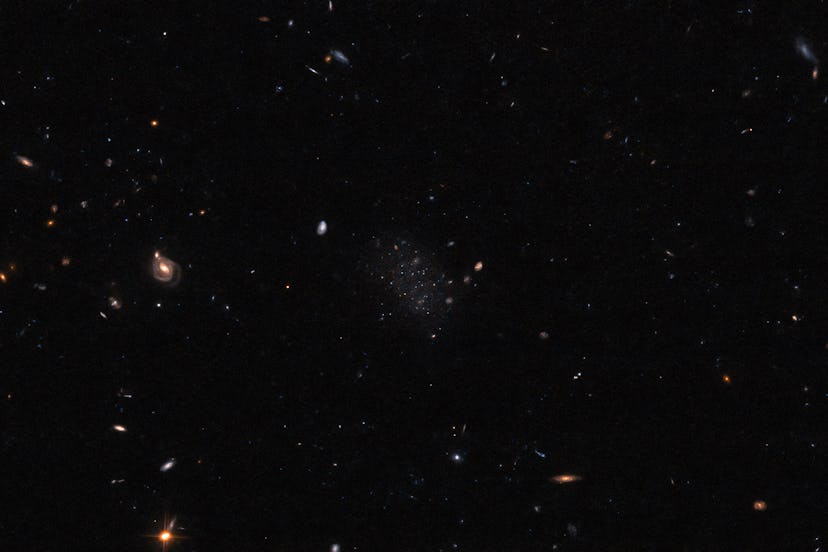Hubble Photo Reveals A Brand New Galaxy Discovered By An Amateur Astronomer
A new image released of a newly discovered galaxy found by an amateur astronomer.

There is no better time to be alive than right now if you’re an amateur astronomer or parenting a budding one. With last year’s launch of the James Webb Space Telescope (JWST), and the many other telescopes across the galaxy, there are more opportunities now than ever to look at real data of the world beyond our planet. And it can have some pretty fun results—like this new image released of a newly discovered galaxy that was found by an amateur astronomer.
Can you explain this photo to me like I’m 5?
At first glance, this image doesn’t look like a whole lot. It’s dark, with small specks of stars and galaxies. But looks can be deceiving — and the fact this was discovered by an amateur scientist makes it all the cooler.
You’re seeing a newly discovered dwarf galaxy known as Donatiello II, named after the astronomer who discuvered it, according to the news release from ESA. The other objects in this photo include sparkles of distant stars and galaxies even further away.
But, nestled among them is Donatiello, one of three new galaxies that was actually missed by professional astronomers in previous searches.
“All three were missed by an algorithm designed to search astronomical data for potential galaxy candidates,” ESA explains. “Even the best algorithms have their limitations when it comes to distinguishing very faint galaxies from individual stars and background noise.”
And that’s where human scientists come in—and why it’s so cool to be an amateur right now, because they’re able to access the data and be the human sifting through the data when the algorithm can’t.
“Using DES data, amateur astronomer Giuseppe Donatiello made his discovery – three very faint galaxies, now named Donatiello II, III, and IV, respectively,” ESA explained. “All three are satellites of the well-known Sculptor Galaxy (otherwise known as NGC 253), meaning that they are all bound gravitationally to their more massive companion.”
So cool!